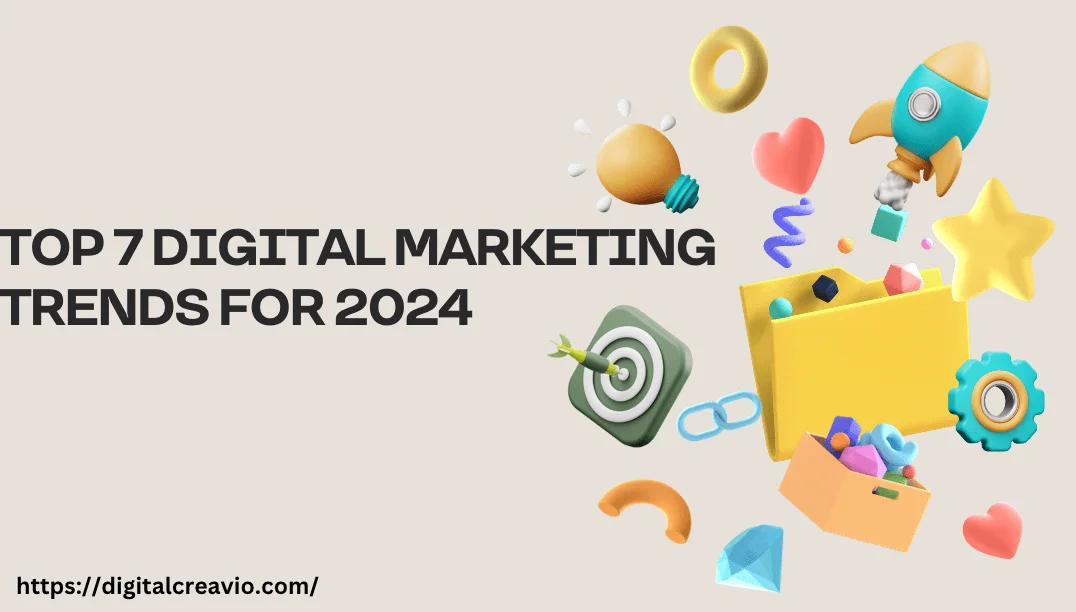As we step into 2024, the digital landscape of marketing trends is developing with vast speed. It is in the emergent phase of generative AI, with such a deep focus on privacy and so much more on shaping the future of digital marketing.
What is Marketing Trend?
A marketing trend is the direction or important developments dominating the marketing industry. It includes changes in technology, along with shifts in consumer behavior and business practices that influence how brands interact with their target audience. In 2024, they are more confined to artificial intelligence, analytics integration, SEO adaptation, and a growing need for authenticity and personalization.
Digital Marketing Industry Trends
The digital marketing industry is embracing transformative technologies and strategic shifts based on the changing expectations of consumers and regulatory standards. As Yogi Berra himself would say, “Predictions are hard, especially about the future.” These 2024 trends, however, bring promising strategies that businesses can embrace to keep up with the competition.
7 Digital Marketing Trends 2024
Here are the top digital marketing industry trends to consider for the year:
- Strategic Planning for Long-Term Success An adaptation plan, suited to a digital marketing environment, is as critical in the short term as it is in the long term, in order to keep up with the present scenario. Most major corporations have an average tenure of just a few years for a CMO, so short-term wins are a necessary piece of evidence to prove value. However, long-term strategic planning helps brands build sustainable marketing initiatives that deliver consistent results over time.
- Generative AI and Machine Learning Generative AI is transforming content creation, ad targeting, and customer experience. For instance, chatbots predictive analytics, and AI-enabled tools have been making things more efficient while giving higher ROI. Much emphasis has been laid on it in your sample that AI can never substitute the creativity of humans. It can support them at most. Marketers who effectively integrate AI into their strategies will be able to provide tailored experiences while maintaining a human touch.
- SEO Adaptation in a Changing Environment SEO continues to evolve, with a renewed focus on user intent and content quality. As the industry adapts to Google’s continuous updates, SEO experts are shifting toward reputational authority, geographic specificity, and ongoing experimentation. As noted in your sample, Rand Fishkin advises that SEO is far from dead; instead, it requires adaptability and a commitment to high-quality, authoritative content.
- Enhanced Link-Building through Public Relations In 2024, link-building strategies are going beyond traditional tactics. Building brand reputation and authority through PR is becoming essential. This trend emphasizes the importance of securing mentions from reputable sources. Such mentions not only bolster SEO but also enhance brand credibility. Reputable backlinks and public relations will remain essential for sustained growth.
- AI-Powered Paid Media AI in paid media is reintroducing programmatic advertising, offering marketers an automated way to reach audiences with laser-focused targeting. AI-powered paid media, as demonstrated by Google and Meta, helps brands organize audience insights and utilize integrated technology. This capability enables brands to reach audiences across multiple screens effectively. Additionally, it allows for real-time adjustments that enhance campaign performance and outcomes.
- Comprehensive Analytics for Brand Awareness Brands can now use Google Analytics 4 (GA4) to assess brand awareness alongside conversions, utilizing metrics like traffic acquisition and demographic insights. The ability to observe user engagement and measure actions, such as downloads, scroll depth, and video plays, enables marketers to fine-tune their strategies for brand awareness and lead generation goals.
- Content Marketing: Adapt or Overhaul The content marketing landscape is rapidly adapting to reflect consumer preferences and search engine advancements. With the introduction of Google’s Search Generative Experience (SGE), content strategies are transforming to emphasize authentic storytelling and audience engagement. Marketers have to be stiff and flexible because the content remains one of the touchpoints of the customer journey.
Conclusion
Digital marketing trends for 2024 will be a more vibrant landscape than ever, with AI and strategic, long-term planning and personal, authentic customer experiences all playing a role. From SEO adaptations to AI-powered paid media, these trends clearly illustrate the industry’s shift toward smart, data-driven decision-making. Moreover, such strategies are essential for building both trust and loyalty in brands. While AI supports efficiency, it cannot replace human creativity. Therefore, maintaining a balance between technology and creativity is critical for marketers aiming to connect deeply with their audiences. Looking ahead, how will you integrate these trends to keep your brand relevant and impactful? Which of these trends do you think will shape your strategy the most? Share your thoughts below!
Read Also: Marketing Automation Tools: How to Streamline Your Campaigns


